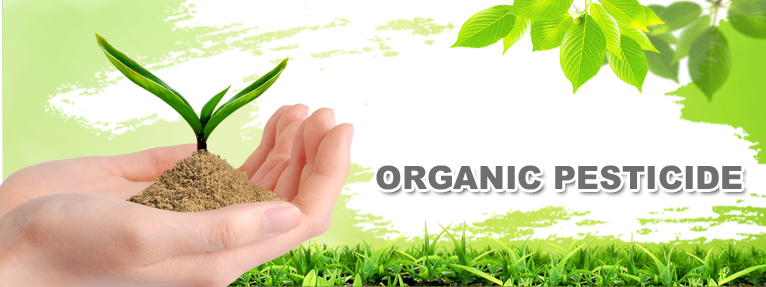In recent years, there has been a significant shift in agricultural practices toward more sustainable and environmentally friendly methods. One such practice gaining traction is the use of organic pesticides. Unlike their synthetic counterparts, organic pesticides offer numerous benefits, not only for the environment but also for human health and agricultural sustainability. This article explores the myriad advantages of organic pesticides, shedding light on why they are becoming an integral part of modern farming.
1. Environmental Sustainability
Organic pesticides are derived from natural sources such as plants, minerals, and microorganisms. Because they are biodegradable and less persistent in the environment, they significantly reduce the risk of soil and water contamination. Synthetic pesticides, on the other hand, often contain chemicals that can linger in the environment, potentially causing long-term ecological damage.
By using organic pesticides, farmers can maintain the health of their soil. Healthy soil is crucial for sustainable agriculture as it supports plant growth, water retention, and the natural ecosystem. Organic pesticides help preserve beneficial insects, earthworms, and other organisms that contribute to soil fertility.
2. Reduced Health Risks
One of the most compelling reasons to use organic pesticides is the reduction of health risks associated with pesticide exposure. Synthetic pesticides can leave harmful residues on fruits and vegetables, posing health risks to consumers. These risks include potential links to cancer, endocrine disruption, and neurological disorders.
Organic pesticides, however, are generally considered safer for both consumers and agricultural workers. They are typically less toxic and do not accumulate in the human body or the environment. This makes organic produce a healthier option for families, particularly those with young children who are more vulnerable to chemical exposure.

3. Pest Resistance Management
The overuse of synthetic pesticides has led to the development of resistant pest populations, making it increasingly difficult to control certain pests. Organic pesticides often have multiple modes of action, reducing the likelihood of pests developing resistance. Additionally, organic farming practices promote biodiversity, which naturally helps control pest populations through a balanced ecosystem.
By incorporating crop rotation, polyculture, and natural predators, organic farmers create a dynamic environment where pests are less likely to thrive. This holistic approach reduces the reliance on any single pest control method, making it harder for pests to adapt and survive.
4. Support for Biodiversity
Biodiversity is crucial for a resilient agricultural system. Organic pesticides tend to be less harmful to non-target species, including beneficial insects like bees, butterflies, and ladybugs. These beneficial insects play a vital role in pollination and natural pest control, contributing to the overall health of the ecosystem.
Moreover, organic farming practices often include the planting of cover crops and maintaining hedgerows, which provide habitats for wildlife. This support for biodiversity enhances the resilience of the farming system, making it more adaptable to changing environmental conditions.
5. Improved Soil Health
Healthy soil is the foundation of productive agriculture. Organic pesticides contribute to soil health by promoting microbial activity and organic matter content. Unlike synthetic pesticides, which can harm soil microorganisms, organic pesticides support a diverse microbial community that is essential for nutrient cycling and plant health.
Enhanced soil health leads to better water retention, reduced erosion, and increased resilience to drought and other climate-related challenges. Over time, this results in more robust crop yields and a more sustainable agricultural system.

6. Economic Benefits for Farmers
While the initial cost of organic pesticides can be higher than synthetic options, the long-term economic benefits are significant. By maintaining healthy soil and reducing pest resistance, farmers can achieve more consistent and higher-quality yields. Additionally, the growing demand for organic produce allows farmers to command higher prices, providing a better return on investment.
Furthermore, organic farming practices can reduce the need for expensive inputs like synthetic fertilizers and pesticides, leading to lower overall production costs. Government incentives and certification programs for organic farming can also provide financial support to farmers transitioning to organic practices.

Conclusion
The shift towards organic pesticides is more than just a trend; it represents a crucial step towards sustainable and environmentally friendly agriculture. The benefits of organic pesticides—ranging from environmental sustainability and reduced health risks to improved soil health and economic gains for farmers—underscore their importance in modern farming practices. As consumers increasingly prioritize health and environmental impact, the adoption of organic pesticides is likely to continue growing, paving the way for a healthier planet and more sustainable agricultural practices.


Leave A Comment